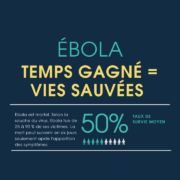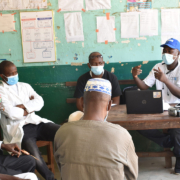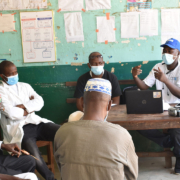Driving Online Action: How ZBRA Orientation Sessions Grew Engagement from Guinea
Today the threat of zoonotic diseases like mpox, Ebola, and COVID-19 looms large. Understanding the human behaviors which influence spillover of diseases from animals and ongoing spread is an essential step toward addressing this problem. In Guinea, the risk is heightened by the presence of several endemic zoonotic diseases such as Lassa fever, anthrax, and rabies. Economic pressures and feelings of helplessness make adopting zoonotic disease prevention behaviors difficult. Strategic knowledge management can accelerate an evidence-based response to outbreaks. Health professionals can quickly collect crucial data if they are aware of tested tools and resources and know how to access them. Breakthrough ACTION Guinea has played a pivotal role in addressing these issues by introducing stakeholders to the project’s Zoonotic Behavioral Research Assessments (ZBRA) website. ZBRA is a comprehensive toolkit for public health professionals conducting research on behaviors influencing zoonotic diseases, including risk and prevention behaviors and the sociocultural drivers influencing these behaviors. Through recent outreach activities, Breakthrough ACTION Guinea has significantly increased traffic to the ZBRA website, helping more people access this invaluable resource.
ZBRA: A Toolkit for Behavioral Research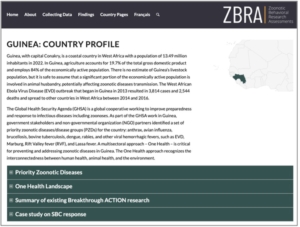
ZBRA is a repository of tools supporting behavioral research focused on zoonotic diseases. It provides evidence-based insights that can enhance risk communication and empower communities to mitigate the spread of diseases. ZBRA equips users with the resources to investigate these behavioral drivers and apply findings in the field. However, this potential can only be realized through active engagement with the site, which is where Breakthrough ACTION Guinea’s initiative comes into play.
Stakeholder Orientation: Engaging Key Influencers
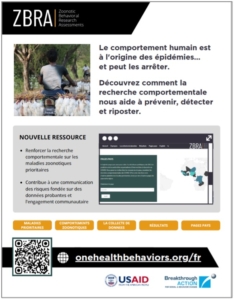 In June 2024, Breakthrough ACTION hosted two orientation sessions in Guinea. Immediately afterward, from July 1 through September 1, 2024, traffic from Guinea accounted for 72.77% of all traffic to the site. Nearly all of this traffic was due to new users to the site, and one-third of these users were classified as “engaged users”; that is, the session lasted longer than 10 seconds or had two or more screen or page views. These orientations engaged 56 participants from the One Health Platform and the Risk Communication and Community Engagement Technical Working Group. These hands-on sessions demonstrated how to navigate the ZBRA website and utilize its database of tools and reports from zoonotic disease research conducted by Breakthrough ACTION. Participants included key decision makers and influencers in health and behavior change communication, making these sessions an effective way to raise awareness of the website and its utility in preparing for and responding to zoonotic disease outbreaks.
In June 2024, Breakthrough ACTION hosted two orientation sessions in Guinea. Immediately afterward, from July 1 through September 1, 2024, traffic from Guinea accounted for 72.77% of all traffic to the site. Nearly all of this traffic was due to new users to the site, and one-third of these users were classified as “engaged users”; that is, the session lasted longer than 10 seconds or had two or more screen or page views. These orientations engaged 56 participants from the One Health Platform and the Risk Communication and Community Engagement Technical Working Group. These hands-on sessions demonstrated how to navigate the ZBRA website and utilize its database of tools and reports from zoonotic disease research conducted by Breakthrough ACTION. Participants included key decision makers and influencers in health and behavior change communication, making these sessions an effective way to raise awareness of the website and its utility in preparing for and responding to zoonotic disease outbreaks.
One participant, Moussa Soumah, the Director of the National Service for Health Promotion, explained the orientation was very beneficial to him: “It reinforced my approach to working on behavior change strategies and messages, which cannot be done without first analyzing the factors linked to problem behaviors in a structured and rapid way by using this tool.”
As stakeholders gain a deeper understanding of how human behavior affects zoonotic disease transmission and how it can be mitigated, they will turn to the ZBRA website for insights and resources. Soumah confirms, “We’ll be using this platform to better structure our interventions in our research and development of SBC strategies and messages relating to zoonoses.”
Amplifying Impact Through Multimedia Resources
To further enhance engagement, the Breakthrough ACTION Guinea team created a user-friendly YouTube video in French and English. This video guides ZBRA website navigation, making it accessible to a broader audience, including neighboring countries that face similar public health challenges. The platform promotes global and regional collaboration, helping One Health and risk communication and community engagement stakeholders, including government ministries, civil society organizations, and international nongovernmental organizations, prepare for and respond to these threats. Additionally, more than 3,000 informative flyers were distributed during the orientation sessions, reaching colleagues and stakeholders at the national and regional levels.
Meanwhile, project staff also posted the multimedia resources on Facebook and “boosted” the posts to Guineans interested in behavior change or research and public health employees. Through these posts, the ZBRA video reached 16,432 people and was played 24,962 times. One post was boosted twice and generated 949 “link clicks” to the ZBRA website.
ZBRA website analytics indicated spikes in visitation following the orientations and the promotion of these materials on social media, demonstrating the effectiveness of a multifaceted promotional approach.
Looking Ahead
Human behavior is central to the trajectory of zoonotic disease outbreaks, making behavioral research a cornerstone of epidemic prevention. ZBRA provides the necessary tools to understand and influence these behaviors, enabling practitioners to make informed decisions in the field.
The success of Breakthrough ACTION Guinea’s ZBRA orientation sessions highlights the power of strategic knowledge dissemination in combating zoonotic diseases. By equipping public health professionals with accessible, evidence-based tools, these sessions have not only increased awareness but also catalyzed meaningful action across Guinea and beyond. As the toolkit expands, adding new resources and covering more emerging and epidemic-prone diseases, its continued promotion will further empower local stakeholders and strengthen their ability to prevent and mitigate zoonotic disease transmission. This effort underscores the critical role of behavioral research in global health, positioning ZBRA as an invaluable resource for safeguarding communities against future zoonotic outbreaks.
Written by: Antonia Morzenti, Senior Program Officer

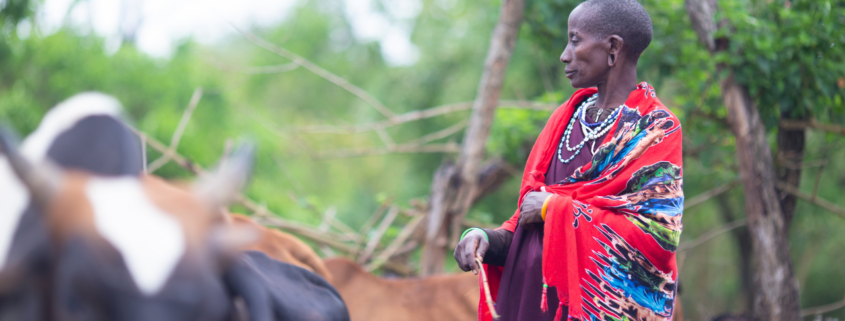
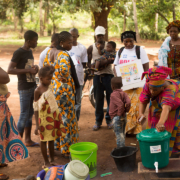 UNICEF Guinea
UNICEF Guinea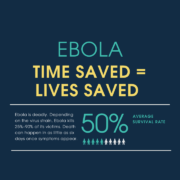
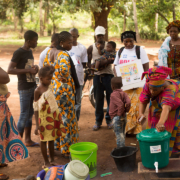 UNICEF Guinée
UNICEF Guinée